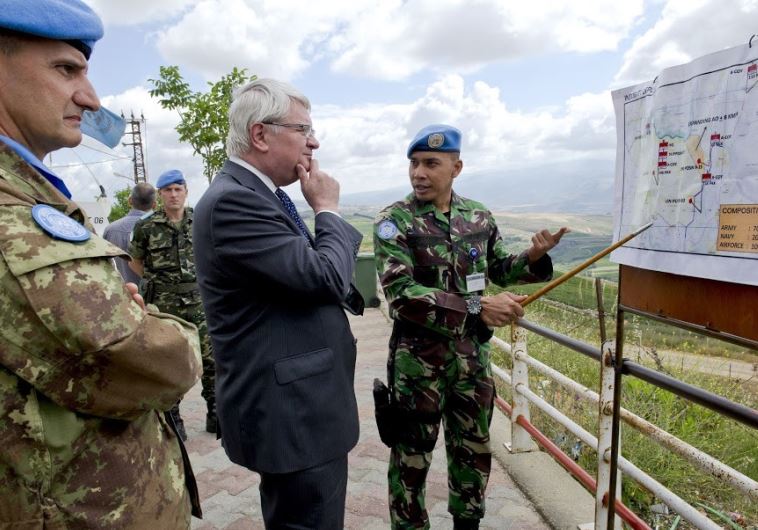UN under sec.-gen. tells ‘Post’ Hezbollah busy fighting in Syria, war in Lebanon unlikely
French diplomat Ladsous: Syria no longer "peacekeeping territory" but UNDOF still needed.
 UN under sec.-gen. tells ‘Post’ Hezbollah busy fighting in Syria, war in Lebanon unlikelyUpdated:
UN under sec.-gen. tells ‘Post’ Hezbollah busy fighting in Syria, war in Lebanon unlikelyUpdated: